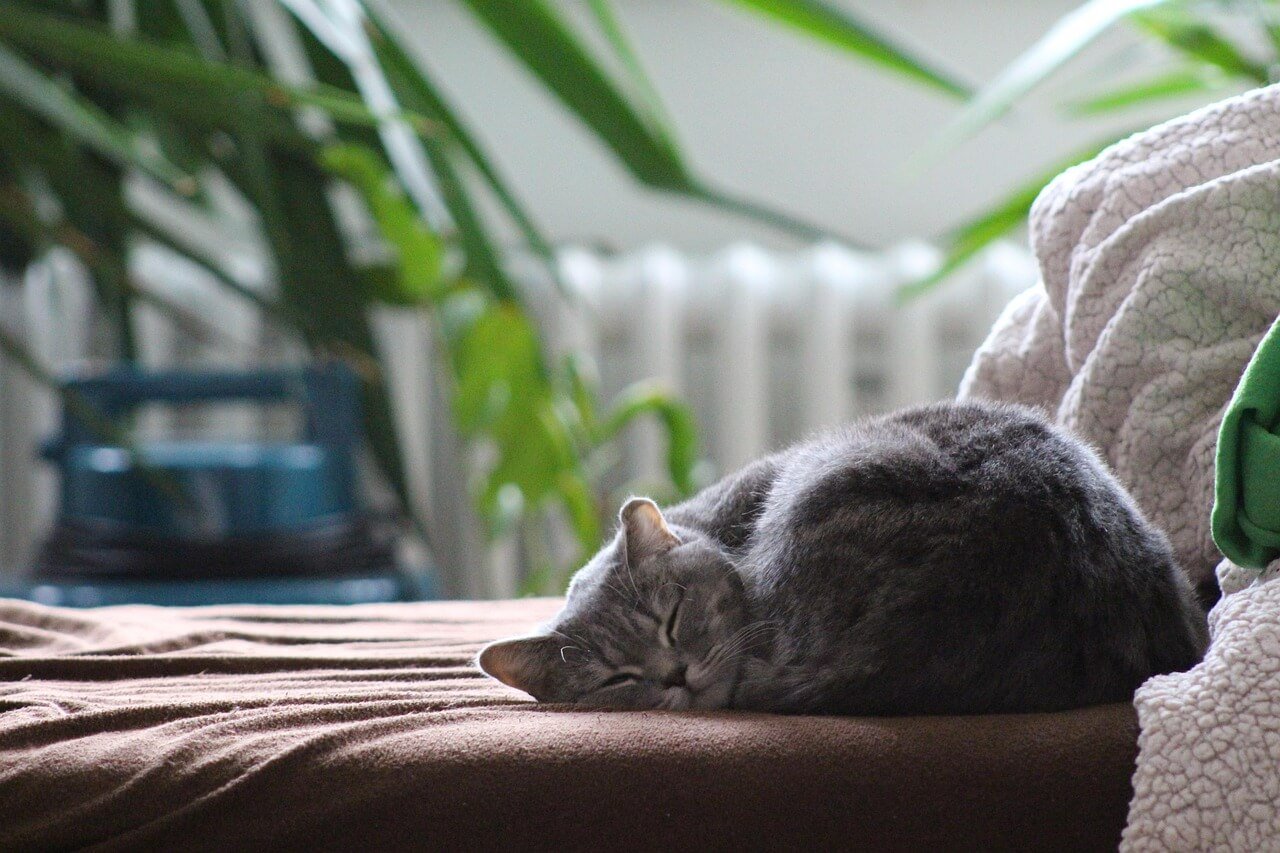Understanding Cat Brain Scans: A Window into Feline Health
When it comes to diagnosing complex health issues in cats, a brain scan can be an invaluable tool. Whether your veterinarian has recommended one or you’re simply curious about how this procedure works, understanding the purpose and process of a cat brain scan is essential for any pet owner. These advanced imaging techniques allow veterinarians to peer inside your cat’s brain, identifying abnormalities that might otherwise go undetected. From seizures to tumors, brain scans provide critical insights that guide treatment decisions.
In this blog post, we’ll explore everything you need to know about cat brain scans, including their benefits, types, preparation, and what to expect during and after the procedure. Let’s demystify this important diagnostic tool and ensure your feline friend gets the best care possible.
Types of Brain Scans for Cats
There are several types of brain scans available for cats, each serving a specific purpose depending on the condition being investigated. Here’s a breakdown of the most common imaging techniques:
MRI (Magnetic Resonance Imaging)
An MRI uses powerful magnets and radio waves to create detailed images of the brain, making it ideal for detecting soft tissue abnormalities like tumors or inflammation.CT Scan (Computed Tomography)
A CT scan combines X-rays and computer technology to produce cross-sectional images of the brain, often used to identify structural issues like fractures or bleeding.Ultrasound
Though less common for brain imaging, ultrasound may be used to examine areas near the skull or assess blood flow in certain cases.X-Rays
While not as detailed as MRIs or CT scans, X-rays can help rule out skull fractures or other obvious structural problems.PET Scan (Positron Emission Tomography)
This advanced scan provides functional information about brain activity and is sometimes used in specialized cases to evaluate metabolic processes.
Each type of brain scan offers unique advantages, and your veterinarian will recommend the most appropriate option based on your cat’s symptoms and suspected condition. These imaging tools are essential for accurate diagnosis and effective treatment planning.
Preparing Your Cat for a Brain Scan
Proper preparation is key to ensuring a smooth and successful brain scan for your cat. Since these procedures often require sedation or anesthesia, there are important steps you’ll need to follow beforehand. Here’s what you should know:
Fasting Requirements
Your cat will likely need to fast for 8-12 hours before the procedure to reduce the risk of complications during anesthesia.Medication Adjustments
Inform your vet about any medications your cat is taking, as some may need to be paused before the scan.Pre-Scan Check-Up
A physical exam and blood tests are usually performed to ensure your cat is healthy enough for sedation or anesthesia.Comfort Items
Bring along a familiar blanket or toy to comfort your cat before and after the procedure.Transportation Arrangements
Plan for a calm and secure way to transport your cat to and from the veterinary clinic.
By following these preparation steps, you can help minimize stress for both you and your cat while ensuring the procedure goes smoothly. Always consult your veterinarian for specific instructions tailored to your pet’s needs.
Check this guide 👉How Big Are Cat Brains? Best 7 Expert Tips!
Check this guide 👉Cats and Schizophrenia: Best 7 Expert Tips!

Types of Brain Scans for Cats | Best Uses for Each Scan Type |
|---|---|
MRI (Magnetic Resonance Imaging) | Detecting tumors, inflammation, or soft tissue issues |
CT Scan (Computed Tomography) | Identifying fractures, bleeding, or structural abnormalities |
Ultrasound | Examining nearby areas or assessing blood flow |
X-Rays | Ruling out fractures or large-scale structural issues |
PET Scan (Positron Emission Tomography) | Evaluating brain activity and metabolic processes |
What to Expect During and After a Cat Brain Scan
Understanding the process of a brain scan can help ease your concerns as a pet owner. Here’s what typically happens during and after the procedure:
Sedation or Anesthesia
Most brain scans require your cat to remain completely still, so sedation or anesthesia is administered to ensure their safety and comfort.The Scanning Process
The actual scan usually takes 30-60 minutes, during which your cat is monitored closely by veterinary staff.Post-Scan Recovery
After the procedure, your cat will be moved to a recovery area where they are observed until the effects of sedation wear off.Results and Diagnosis
The images from the scan are analyzed by a veterinarian or radiologist, who will discuss the findings and recommend next steps.Follow-Up Care
Depending on the results, additional treatments or monitoring may be necessary to address any identified issues.
Knowing what to expect can help you feel more prepared and confident about the entire process. Remember, your veterinarian is there to guide you every step of the way.
Benefits of Brain Scans for Cats
Brain scans offer numerous benefits when it comes to diagnosing and treating neurological conditions in cats. Here’s why they are such a valuable tool in veterinary medicine:
Early Detection of Problems
Brain scans can identify issues like tumors or inflammation at an early stage, improving the chances of successful treatment.Accurate Diagnosis
These imaging techniques provide detailed visuals that help veterinarians pinpoint the exact cause of symptoms.Non-Invasive Procedure
Unlike exploratory surgery, brain scans are minimally invasive and carry fewer risks for your cat.Guides Treatment Plans
The information gathered from a brain scan allows veterinarians to develop targeted and effective treatment strategies.Improves Quality of Life
By addressing underlying health issues, brain scans contribute to better long-term outcomes and overall well-being for your cat.
The benefits of brain scans make them an indispensable tool for ensuring your cat receives the best possible care. Early intervention can make all the difference in managing complex health conditions.
Common Conditions Diagnosed with Cat Brain Scans
Brain scans are instrumental in identifying a variety of neurological and structural issues in cats. These imaging techniques help veterinarians diagnose conditions that might otherwise remain hidden. Here are some common conditions detected through brain scans:
Brain Tumors
Both benign and malignant tumors can be identified, allowing for early intervention and treatment planning.Seizure Disorders
Scans can reveal abnormalities in brain structure or activity that may be causing seizures.Inflammatory Diseases
Conditions like meningitis or encephalitis often show up as areas of inflammation on brain scans.Trauma or Bleeding
Scans can detect internal bleeding, hematomas, or fractures resulting from head injuries.Congenital Abnormalities
Structural issues present from birth, such as hydrocephalus, can be diagnosed through detailed imaging.
These conditions highlight the importance of brain scans in pinpointing the root cause of symptoms. Early detection through imaging can significantly improve outcomes for cats suffering from these ailments.
Tips for Reducing Your Cat’s Anxiety Before a Brain Scan
Cats are naturally sensitive creatures, and veterinary procedures can be stressful for them. Reducing your cat’s anxiety before a brain scan can make the experience smoother for both of you. Here are some practical tips to keep your feline calm:
Create a Calm Environment at Home
Spend time in a quiet space with your cat to help them relax before the appointment.Use Familiar Scents
Bring along a blanket or item with your scent to comfort your cat during transport and at the clinic.Practice Short Car Rides
If your cat isn’t used to traveling, take them on short car rides beforehand to acclimate them to the experience.Stay Calm Yourself
Your cat can pick up on your emotions, so maintaining a relaxed demeanor can help soothe them.Reward Good Behavior
Offer treats or gentle praise after the procedure to reinforce positive associations with vet visits.
By taking these steps, you can minimize stress and ensure your cat feels as comfortable as possible. A calm cat is easier to handle and more likely to have a successful scan.
Fun Facts About Veterinary Imaging Technology
Veterinary imaging technology has come a long way, offering fascinating insights into the inner workings of our pets’ bodies. Here are some intriguing facts about the tools used in cat brain scans:
MRI Machines Use Powerful Magnets
The magnets in MRI machines are so strong that they can pull metal objects from across the room—hence the strict no-metal rule!CT Scans Were Invented in the 1970s
Computed tomography revolutionized medical imaging and remains a cornerstone of diagnostics today.Ultrasound Uses Sound Waves, Not Radiation
Unlike X-rays, ultrasound relies on high-frequency sound waves to create images, making it safer for repeated use.PET Scans Highlight Active Areas
Positron emission tomography detects metabolic activity, showing which parts of the brain are most active during specific tasks.Imaging Tech Continues to Evolve
Advancements in AI and machine learning are improving the speed and accuracy of diagnostic imaging for animals.
These fun facts underscore the incredible science behind veterinary imaging. Thanks to these innovations, veterinarians can provide better care and more accurate diagnoses for our beloved pets.
Frequently Asked Questions About Cat Brain Scans
Are brain scans safe for cats?
Yes, brain scans are generally safe, especially when performed under the supervision of experienced veterinary professionals.
Will my cat feel pain during the scan?
No, your cat will be under sedation or anesthesia, so they won’t feel any discomfort during the procedure.
How much does a cat brain scan cost?
Costs vary depending on the type of scan and location, but they can range from a few hundred to over a thousand dollars.
Can brain scans detect all types of neurological issues?
While highly effective, brain scans may not detect every issue, but they provide critical insights for most conditions.
How long does it take to get results from a brain scan?
Results are typically available within a few days, though urgent cases may be prioritized for faster analysis.
Empowering Your Cat’s Health Journey with Brain Scans
A cat brain scan is more than just a diagnostic tool—it’s a gateway to understanding and addressing your feline companion’s neurological health. By providing detailed images and insights, these scans enable veterinarians to diagnose conditions accurately and develop tailored treatment plans. As a pet owner, staying informed about the process and its benefits ensures you can make the best decisions for your cat’s well-being. While the thought of a brain scan might seem daunting, remember that it’s a step toward improving your cat’s quality of life. With advancements in veterinary medicine, you can rest assured that your furry friend is in capable hands. Together, we can ensure our cats live happy, healthy lives for years to come.
Cat Anaphylactic Shock Treatment Costs: Best 7 Expert Tips! – Learn about costs, treatments, and financial aid options to save your cat’s life.
Exocrine Pancreatic Insufficiency in Cats: Best 7 Tips! – Learn to spot symptoms, manage EPI effectively, and improve your cat’s quality of life with expert advice.
Cost of Dog Anaphylactic Shock Treatment: Best 7 Tips! – Learn about emergency costs, financial planning, and ways to manage expenses for your dog’s care.
Exocrine Pancreatic Insufficiency in Dogs: Best 7 Tips! – Learn to spot symptoms, manage EPI effectively, and improve your dog’s quality of life with expert guidance.





